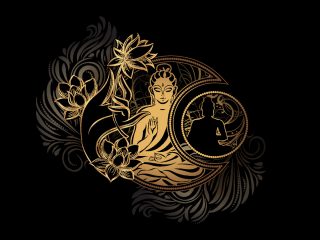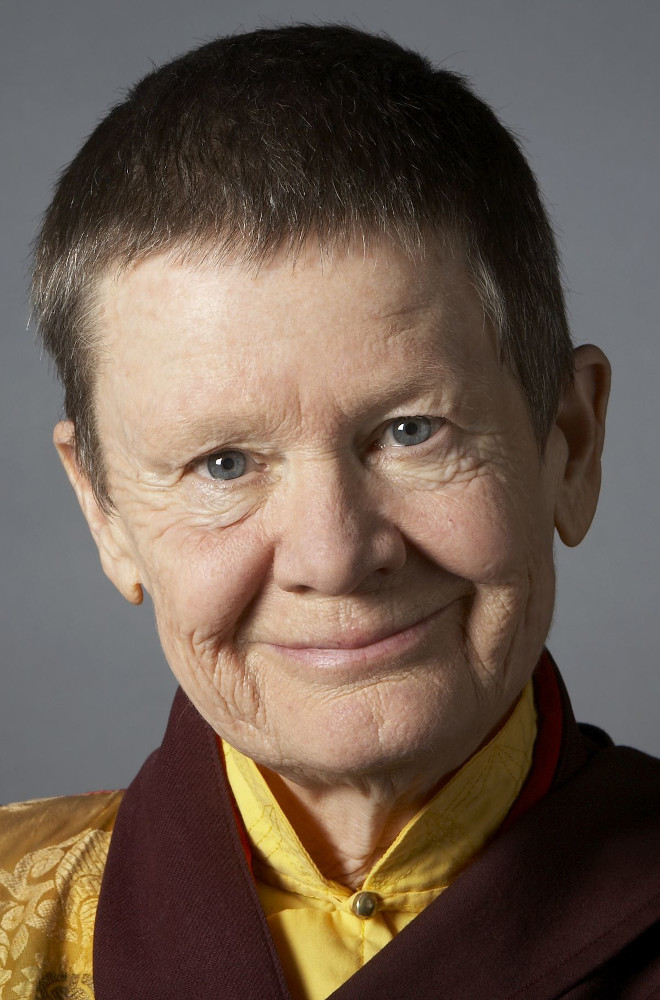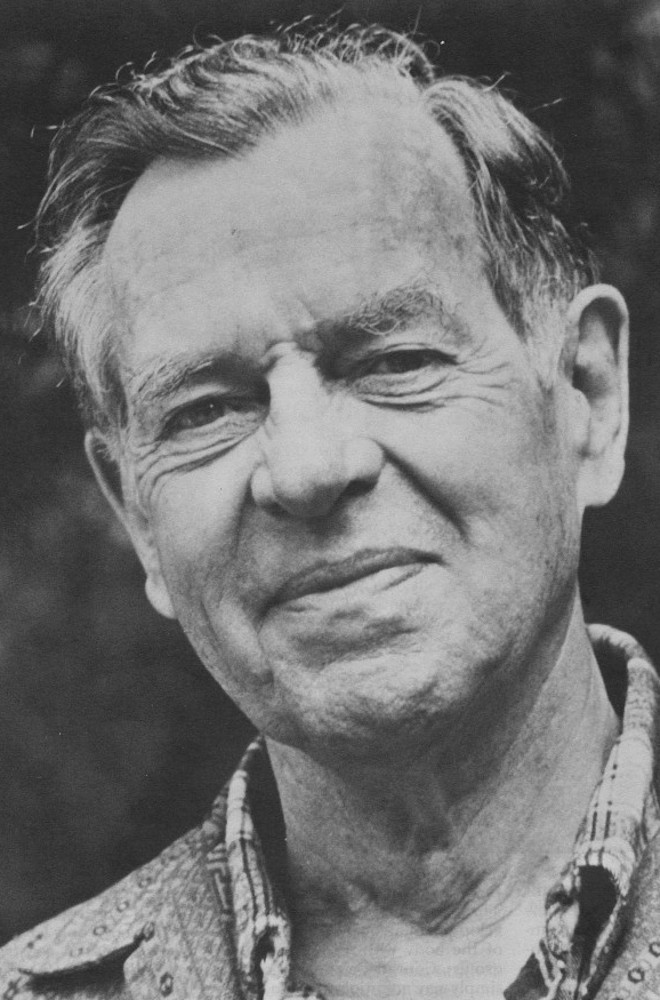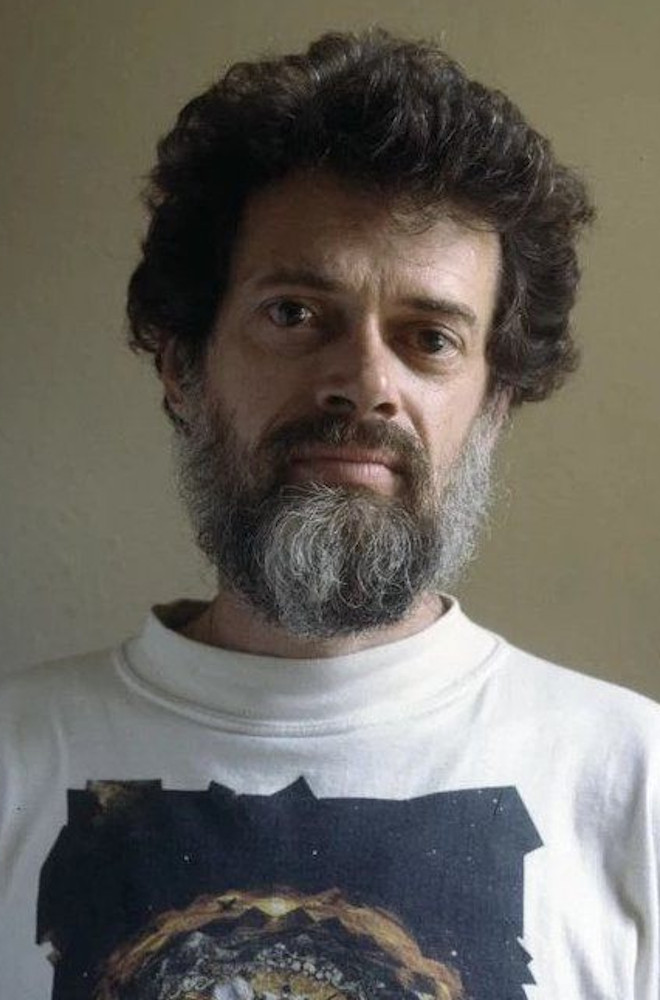 Zen Buddhism is an ancient philosophy that originates from China initially but later spread to Japan and Korea. It wasn’t until the mid 20th century that it got very popular among the West.
Zen Buddhism is an ancient philosophy that originates from China initially but later spread to Japan and Korea. It wasn’t until the mid 20th century that it got very popular among the West.
The word Zen by itself derives from the Chinese word Ch’an, which in Japanese pronunciation means mediation. In today’s world, the most popular version of this word in the West is as we all know it – Zen.
What Does Zen Buddhism Mean?
Zen Buddhism is, before all else, a meditation-based form of Buddhism that is passed from master to disciples and has been doing so for centuries. It was created as the result of mixing and combining the essence of both Taoism and Mahayana Buddhism, thus resulting in a totally new philosophy. In any case, you are about to learn all there is about this topic in the following Zen Buddhism books review.
Best Books on Zen Buddhism
| Photo | Title | Rating | Length | Buy |
|---|---|---|---|---|

|
Tao Te Ching | 9.64/10 | 89 Pages | Check Price On Amazon |

|
Zen Mind, Beginner's Mind | 9.58/10 | 176 Pages | Check Price On Amazon |

|
Peace is Every Step | 9.54/10 | 134 Pages | Check Price On Amazon |

|
Zen Flesh, Zen Bones | 9.28/10 | 216 Pages | Check Price On Amazon |

|
No-Nonsense Buddhism for Beginners | 9.82/10 | 146 Pages | Check Price On Amazon |
Tao Te Ching By Lao Tzu
 The Life of Lao Tzu
The Life of Lao Tzu
Tao Te Ching is a Chinese text, most probably dating from the 6th century B.C. it explores the life of its author, Lao Tzu, and explains his philosophy which is the basis of Taoism. It is a work that serves as a fundamental text for both philosophical and religious Taoism – a philosophy that seeks harmony by freeing the individual from all desire, greed, and judgmental thinking. This is a text that has been translated more frequently than any other work, except the Bible, and it is one of the best-selling zen Buddhism books out there.
The Natural Order of Things
The philosophy of Lao Tzu is simple: the man should accept what’s in front of him without wanting to change the situation or the circumstances. It is a study of the natural order of things and explains how the individual should work with nature in synchrony, rather than against it.
This particular translation is one of the best-rated zen Buddhism books because it captures the nature of the text well, the style isn’t too ornate, while it gives you the basics of what you need to understand. It contains a detailed introduction exploring the life of Lao Tzu, followed by 81 short chapters written in poetic form, which content serves to provide guidance on how humanity may live in a harmonious relationship with nature.
Zen Mind, Beginner’s Mind By Shunryu Suzuki
 The Founding Father of Zen in America
The Founding Father of Zen in America
“In the beginner’s mind there are many possibilities, but in the expert’s there are few.”
with this sentence begins the most beloved of zen philosophy books. Zen Mind, Beginner’s Mind is written by Shunryu Suzuki, often referred to as a “founding father” of Zen in America, being one of the first to bring the teachings to the country, and the first one to find a Buddhist monastery out of Asia, in California.
His book is not good only as an introduction for people who want to learn Zen, but it is good discussion material for Zen practitioners, as well. It allows everyone to learn as much as possible about the topic, forming a solid base of knowledge for diving in deeper later on.
How to Become More Mindful
The book features lots of essays that Shunryu used to help teach his students. Each of them is neatly arranged by topics to help for an easier read. He succeeds in presenting the basics – from the details of posture and breathing to the perception of nonduality – with a clear expressive tone. Whether you meditate or not, he provides useful insights for anyone interested in becoming more mindful.
Regardless of the fact that it is a short book; it depicts with precision the very rich and philosophical teaching. The author’s writing style is direct, demystifying Buddhism as a religion, continuously bringing the focus back to the simple practice of sitting – cleaning out your mind through meditation, giving you a feeling of calmness and tranquility while reading the book.
Peace Is Every Step By Thich Nhat Hanh
 How to Stay Positive
How to Stay Positive
Written by the world-renowned Zen master and spiritual leader, Thich Nhat Hanh, this book shows you how to see the positivity in every situation that usually pressures you. It explains the journey to ‘mindfulness’ – the process of focusing your awareness on the present moment, and reality.
What makes Peace Is Every Step one of the best Zen books for beginners is the fact that it provides you with exercises to increase the awareness of your own body and mind through conscious breathing, which can help you experience instant peace and calmness.
Being Happy Is Your Choice
The book is divided into three sections, each of which tells a short story, or seeks to describe an experience the reader might relate to. It provides insightful tips on how to deal with destructive emotions through meditation, and how to be aware of relationships with others and the world in general.
Peace Is Every Step encourages the reader to aim for world peace while at the same time working on keeping their inner peace. Moreover, the book contains personal anecdotes and stories from Nhat Hanh’s experience as a peace activist and teacher. It is one of the best books on Zen Buddhism, as its main idea is that happiness is a choice, something that is entirely dependent on you.
Zen Flesh, Zen Bones by Paul Reps and Nyogen Senzaki
 5 Centuries of Zen Stories
5 Centuries of Zen Stories
Zen Flesh, Zen Bones was first published in 1957, becoming an instant sensation with an entire generation of readers, but has also inspired many American Zen teachers, students, and practitioners over the years.
It includes 101 Zen stories, a selection of tales that talk about actual experiences of Chinese and Japanese Zen teachers over a period of more than five centuries. Written in a simplified, but also elegant manner, this book is among the top 10 books on Zen Buddhism as it shares people’s experiences of Zen, the stages of awareness, and includes mind puzzles to further prompt awareness.
The Basics of Zen
Zen Flesh, Zen Bones is divided into four parts, each demonstrating Zen writing in a different format. It is a collection of classic short pieces of writing, beginning with 101 brief Zen stories, followed by the “Gateless Gate” – a collection of thoughts, anecdotes, parables, and Koans – designed to lead the reader’s mind towards enlightenment.
It also includes the classic “10 Bulls”, which symbolize the stages of awareness, offering 112 ways to open the “door of consciousness”. It is a great book for those of you who are quite unfamiliar with the subject, but also for those seeking to further explore the Zen philosophy. All you need is to have an open mind and a will to find a more peaceful way to simply be.
No-Nonsense Buddhism for Beginners by Noah Rasheta
 A Simple Way to Zen Buddhism
A Simple Way to Zen Buddhism
No-Nonsense Buddhism for Beginners is the most straightforward guide to understanding the basic concepts of Buddhism and how they relate to your everyday life and situations. The author, Noah Rasheta, is a renowned Buddhism teacher, who does a great job of writing something fresh and new about a topic that has been exhaustingly analyzed. He manages to deliver an easily understandable introduction to the teachings of Buddhism that answers the most common questions the reader can have.
By reading this, you’ll gain a fundamental understanding of Buddhism and how to apply the philosophy to your daily life, which makes this book one of the best Zen Buddhism books you will ever read.
How to Practice Zen Buddhism
Presented in a simple, conversational style, the information and guidance this book contains provide the foundation that is necessary for establishing or continuing your own Buddhism practice. It explains the key concepts of the philosophy in a simple language and illustrates them with everyday examples, which makes it suitable for complete beginners.
No-Nonsense Buddhism is a great book for anyone looking to learn more about Buddhism teaching in a secular kind of approach. The information is presented in a question & answer format, which makes it easy to navigate through the book, serving as a great guide to practicing Buddhism and implementing its philosophy in your life.
The Way of Zen by Alan W. Watts
 A Comprehensive Guide on Zen Buddhism
A Comprehensive Guide on Zen Buddhism
The Way of Zen is a book in which the author, Alan W. Watts does an amazing job of explaining crucial characteristics of Zen Buddhism to anyone interested in learning. There can be no doubt that this is one of the best Zen Buddhism books in existence, as the author is one of the most famed philosophers on the subject from his time.
Alan uses a combination of freshness and clarity of expression while delving into the origins and history of Zen and giving a detailed explanation of what it means. This is one of the most popular Zen Buddhism books as it is a remarkably lucid account of the Zen philosophy, while at the same time being very informative and easy to read.
A Direct Awakening
The book starts by tracing the origins of Zen philosophy, but also explains Taoism and Mahayana Buddhism, at the same time contrasting the Eastern way of thinking with the Western one and promoting spontaneity and calmness of mind. Zen itself is all about direct experiencing, simplicity, and connecting with nature, promoting that the way of Zen is to be simply human.
Near the end of the book, Watts delves into explaining how Zen philosophy is applied to the arts of haiku, calligraphy, gardening, painting, and even archery. The point of The Way of Zen is that the “Final Truth” can’t be discovered by gaining certain knowledge, or by thinking about it, but by one’s experience of a direct awakening.
The Three Pillars of Zen by Philip Kapleau
 The Discipline of Zen Buddhism
The Discipline of Zen Buddhism
The Three Pillars of Zen is an established classic, a book that mainly focuses – as the title states – on exploring the three pillars of Zen: teaching, practice, and enlightenment, presenting a very comprehensive look back into everything that goes into the art of Zen Buddhism.
Philip Kapleau, the book’s author, succeeds in breaking down the mechanics of Zen in order to give the reader a clear understanding of the philosophy’s purpose and its practice. It is a collection of interesting testimonials, illustrations, and photographs, consisting of a variety of sources, including introductory lectures on Zen by one of Kapleau’s teachers.
The Importance of Enlightenment
The book is written from the Rinzai Zen perspective, which means that it is very intense in explaining the rigid practice and emphasizing the importance of achieving enlightenment. The Three Pillars begins with an introduction that contains clear explanations and instructions, written in a formal, but straightforward tone. The middle part of the book is, in fact, a collection of transcripts and testimonies of several students who achieved enlightenment.
The appendix contains common zazen postures, FAQ & answers, commentaries, and verses. What makes this book one of the top Zen Buddhism books is the way Kapleau brings freshness and enthusiasm to the subject. It also goes far to show the differences between Japanese and Western Zen, making for an even more compelling read.
Siddhartha by Hermann Hesse
 A Journey Towards Spiritual Fulfillment
A Journey Towards Spiritual Fulfillment
Siddhartha is another classic novel, written by the German-Swiss author Hermann Hesse. It is one of the best books about Zen Buddhism which has inspired and influenced many generations of readers, writers, and thinkers. It tells the story of a wealthy boy named Siddhartha, who abandons a life of privilege in order to seek spiritual fulfillment.
Written from the point of view of a common man, the story cuts through all the rhetoric and debates and gets into the very essence of the matter. Hesse combines different fragments of Eastern, Jungian and Western philosophies into a unique vision of life.
Crucial Life Lessons
Hesse’s book is an allegory about a guy going through different phases of his “search for meaning”, trying to get rid of his ego so that he can experience true peace and enlightenment. The book is, in a way, divided into three parts. Siddhartha goes from nothing to having everything, to going back to having nothing again, living as a simple ferryman, learning life lessons every step of the way.
The book is written in a simple manner, filled with incredible writing while being short enough to keep the reader’s attention. This story mirrors the life of Buddha, but presented through the perspective of a common man, making it different from other books related to this topic.
The Compass of Zen by Seung Sahn
 The Potential of Zen Buddhism
The Potential of Zen Buddhism
The Compass of Zen is a simple presentation of the basic principles and meaning of Zen philosophy by the modern Zen master – Seung Sahn. He is a man with many years of experience teaching throughout the world, best known for his writing style that avoids complexity and obscurity.
He writes in simple and clear language, at times even using humor, in order to explain how Buddhism came about, how it evolved over time, and how insights from each school built up in wisdom that can be applied into the everyday life of men.
Zen Buddhism Essentials
Inside the book, Sahn presents the teaching essentials of Buddhism and Zen in a way that is easily understandable for beginners, but at the same time also rich in stories, insights, and personal experience, which makes this book suitable for experienced meditation students, as well.
Each section of the book is well written and concise, and all the parts together give a detailed introduction to Zen philosophy. Seung Sahn manages to present difficult concepts in an easily understandable manner, employing humorous stories and jokes, and clarifying the meaning of various sutras and different types of Buddhism, which makes this book an essential guide to Buddhism in general and Zen in particular.
A Year of Zen by Bonnie Myotai Treace
 The Ultimate Guide on Zen
The Ultimate Guide on Zen
A Year of Zen is a 52-week guided journal that is filled with writing prompts, meant to inspire peace and tranquility, while at the same time encouraging you to be creative in expressing your thoughts and feelings. It combines the practice of Zen Buddhism with journaling, presenting a powerful way to learn about mindful living, and steer towards a more peaceful and stress-free life.
Whether you’re new to the philosophy of Zen, or you’ve practiced meditation and mindfulness for ages, this book guides you through 52 weeks of journal prompts that can inspire self-exploration, reflection, and mindfulness, which may result in living a happier, more fulfilling life.
How to Think Zen
These writing exercises are meant to bring your attention to seven areas: meditation, liturgy, work, body, study, art, and the world, in general. This might as well be one of the best books on Zen meditation, as it is a prompted journal that gives you guidance through the process, helping you in creating your ritual that stimulates your physical, creative, and intellectual growth. Zen philosophy reminds you that life is a gift and a sacred journey, and its teaching principles are woven into this journal to prompt your thinking and steer you towards the right mindset.
Michael Englert
Michael is a graduate of cultural studies and history. He enjoys a good bottle of wine and (surprise, surprise) reading. As a small-town librarian, he is currently relishing the silence and peaceful atmosphere that is prevailing.





